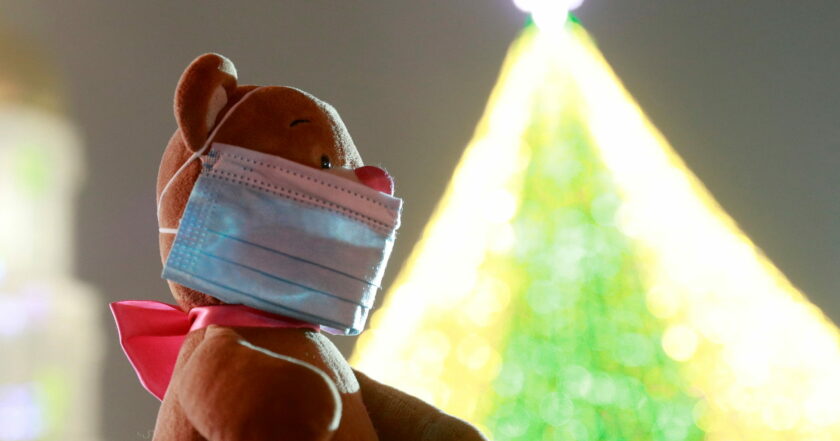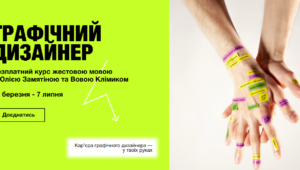From January 8, Ukraine is in a lockdown: what's banned and what works

Photo Reuters
Stricter quarantine, adopted by the Cabinet of Ministers almost a month ago, will take effect in Ukraine on January 8.
What you need to know about the new lockdown.
How long will the lockdown last?
Strict quarantine is valid until January 24. However, the restrictions won't be as strict as those introduced back in March 2020.
It is unknown at this time if they'll prolong the lockdown. But, most likely, no. At least, the authorities didn't make such statements.
What's forbidden
The following restrictions will be introduced for the duration of the toughened quarantine:
- cafes, restaurants, and bars will work only in the delivery and takeaway mode; an exception will be made for establishments located in
- airports; they'll operate normally;
- non-food stores aren't allowed to work;
- cinemas, theaters, and shopping malls almost completely will be closed; only grocery stores, pharmacies, and other business entities will remain open, whose work will be restricted during the new lockdown;
- fitness clubs, gyms, and swimming pools will be closed;
- non-food markets, closed;
- mass events, banned;
- they'll prohibit attending all educational institutions except kindergartens.
What happens to the Christmas markets
Initially, it was reported that during a stricter quarantine, Christmas markets will be closed.
However, later, Acting First Deputy Head of the Kyiv City State Administration Valentyn Mondrievskyi stated that New Year's locations in Kyiv would be open until mid-January, provided that all anti-epidemic measures are observed.
Will the break continue because of quarantine?
Excluding lockdown, a winter break in Ukrainian schools should end on January 10. The Ministry of Education and Science has recommended that schools extend them until at least January 24.
But whether the holidays will continue or whether students will be transferred to remote learning depends on the decision of the schools. They received this right from the Ministry of Education a few years ago.
Besides school administrations, the dates of the winter break will depend on the epidemiological situation in a particular region, the decisions of local education departments and commissions for technological and environmental security and emergencies.
Thus, in Kyiv, a winter break for schoolchildren are scheduled for December 25-January 10; after that, remote learning will begin.
And in the Lviv region, the education department of the local, regional state administration recommended that schools postpone the holidays because of the forthcoming strict quarantine and start them no earlier than January 4, 2021. This will extend the break for the lockdown period.
What will work despite the lockdown?
Public transport will be available during the lockdown.
At the same time, the number of passengers in the city, intercity, regional and interregional transport, including mini-buses, won't exceed the number of seats.
However, the metro will continue to operate without limiting the number of passengers to the number of seats.
International road, air, and rail services will not be stopped either.
Also, the authorities allow the work of:
- grocery stores and markets;
- pharmacies and vet pharmacies;
- shops selling hygiene products, communication products, and animal feed;
- banks and other financial institutions;
- postal operators;
- gas station (without food zones);
- enterprises engaged in car maintenance and repair;
- postal providers;
- hotels provided that the catering areas in them will work only from 6:00 to 11:00;
- by appointment: hairdressers and beauty salons.
Professional sports clubs will be allowed to hold sports events but without viewers.
Permission to sell household chemicals and the press
On December 31, the US Chamber of Commerce called on the Cabinet to reconsider the text of the decree to toughen quarantine from January 8 to 24, as it restricts consumer rights and can lead to conflicts in stores.
The Chamber noted that the decision of the Cabinet of Ministers prohibited trade in all goods, except food, medicines and medical devices, hygiene and communication, and feed, veterinary drugs, seeds, plant protection products. Any other goods can be ordered only with address delivery.
Thus, it's not just about the complete closing of specialty stores.
"From January 8, even in supermarkets, it will be forbidden to sell a significant part of everyday goods: household chemicals and tools, clothing, presses, light bulbs, batteries, children's products for education," the statement said.
Therefore, to restrict visitors' access to goods prohibited for sale, according to the government's decision, supermarkets will be forced to close their departments or prohibit the sale of these products directly at the checkout.
"The wording proposed by the business community will allow businesses, selling goods in retail space, at least 60% of which are intended for trade in food, medicines, medical devices, hygiene and household chemicals, communications, printed mass media, veterinary drugs, fodder, seeds, plant protection products, without restricting visitors' access to other goods," the address said.
What compensation will the business receive for the new lockdown?
On December 4, the Rada adopted a business assistance package in connection with introducing the lockdown. Volodymyr Zelenskyi signed it on December 8.
The aid package provides that
- individual entrepreneurs will be able to receive 8 thousand hryvnias each;
- legal entities can receive up to 8 thousand hryvnias per employee to pay them financial assistance and
- to preserve jobs;
- tax holidays will be introduced for sole proprietors of the first group;
- there will be compensation from the single social security tax fund (for businesses that pay the tax for their employees – ed.); the amount of
- the onetime compensation will be calculated as the average value of the paid taxes for ten months;
- licenses will be extended;
- they'll write off the tax debt, which doesn't exceed 3060 UAH.


















































